What Is The Most Expensive Part Of Moving?
Transportation costs are the most expensive part of moving. They make up 50% to 60% of your total moving bill. This includes truck rental, fuel, mileage, and driver wages. The farther you move, the more you'll pay for transportation.
Moving can cost a lot more than you think. While you might know about hiring movers and buying boxes, many costs stay hidden until moving day. This guide breaks down every expense so you can plan better and save money.
Why Transportation Costs The Most Money
Transportation is always your biggest moving expense. Here's what makes it so costly:
Truck Rental And Fuel Costs
Moving trucks are big and use lots of gas. A large truck can cost $100 per day just to rent. Then you add fuel costs on top. According to the Bureau of Labor Statistics, transportation costs, including moving services, have increased by 5.3% over the last year.
For long moves, fuel costs add up fast. A cross-country move might need $500 to $800 just for gas. According to the U.S. Energy Information Administration, diesel and gasoline prices remain high compared to pre-Covid levels, making transportation more expensive for all types of moves.
Distance Makes A Huge Difference
The average local move costs $1,489, while the average long-distance move costs $3,129. Here's why distance matters so much:
- Local moves (under 50 miles): $550 to $1,492 for small homes
- Long-distance moves (over 100 miles): $1,999 to $9,228+ for larger homes
- Cross-country moves: Often cost double what short moves cost
Weight And Volume Charges
Movers charge based on how much your stuff weighs. More weight means:
- Bigger truck needed
- More fuel used
- Slower driving speeds
- Higher insurance costs
A one-bedroom move weighs about 2,000 to 4,000 pounds. A four-bedroom home can weigh 10,000+ pounds, making transportation much more expensive.
Professional Moving Lab or Costs
After transportation, labor costs are your second biggest expense. The U.S. Bureau of Labor Statistics shows the average rate in 2023 is $19.12 per hour, up from $16.23 in 2020.
How Movers Charge For Labor
Local Moves:
- $80 to $100 per hour for two movers
- $25 to $50 per hour per mover
- Most moves take 4 to 8 hours
Long-Distance Moves:
- Fixed price based on weight
- Includes loading and unloading
- Often costs $2,000 to $5,000 in labor
What Labor Costs Include
Professional movers do more than just carry boxes. Your labor costs pay for:
- Loading your truck safely
- Protecting furniture with padding
- Driving to your new home
- Unloading everything carefully
- Basic furniture assembly
Full-Service Packing Expenses
Full packing services add 15%–30% to total costs, making this the third most expensive part of moving.
Professional Packing Service Costs
Full-service packing costs vary by home size:
- One-bedroom: $270 to $800
- Two-bedroom: $500 to $1,200
- Three-bedroom: $800 to $1,800
- Four-bedroom: $1,200 to $2,200+
Packing Supply Costs
Even if you pack yourself, supplies cost money:
- Moving boxes: $1 to $3 each
- Bubble wrap: $20 to $50 per roll
- Packing tape: $3 to $6 per roll
- Packing paper: $25 to $40 per bundle
You can expect to spend anywhere from $50 to $300 or more, depending on the amount of stuff you're moving.
Specialty Item Moving Fees
Moving special items costs extra because they need careful handling and special equipment.
Most Expensive Items To Move
Pianos: $300 to $1,500
- Need special dollies and straps
- Require trained piano movers
- May need hoisting equipment
Hot Tubs: $500 to $1,200
- Must be drained and dried
- Need heavy-duty equipment
- Require multiple workers
Pool Tables: $400 to $800
- Need complete disassembly
- Slate pieces are very heavy
- Require expert reassembly
Safes: $200 to $600
- Extremely heavy
- Need special moving equipment
- May require stairs or elevator fees
Why Specialty Items Cost More
These items need:
- Extra insurance coverage
- Specialized moving equipment
- Trained professionals
- More time to handle safely
- Custom packing materials
Hidden Moving Costs That Add Up
Many moving expenses stay hidden until your final bill arrives. Watch out for these common add-ons:
Stair And Elevator Fees
If movers can't park their trucks close to your entrance, you may incur long carry fees. These charges account for the additional time and effort needed to transport items over distances exceeding 50–75 feet from the truck to your door.
Common fees:
- Stair fees: $2 to $5 per step
- Long carry fees: $50 to $200 when truck parks far away
- Elevator fees: $75 to $150 for tall buildings
- Shuttle fees: $300+ when big trucks can't access your street
Storage And Delay Costs
If your new home isn't ready, you'll pay storage fees:
- Short-term storage: $50 to $300 per month
- Climate-controlled storage: 25% to 50% more
- Multiple loading/unloading: $200 to $500 extra
Peak Season Charges
Moving costs more during busy times:
- Summer months: 20% to 40% higher prices
- Weekend moves: $100 to $300 premium
- End of month: Higher demand means higher prices
- Holiday periods: Expect 15% to 25% surcharges
Cancellation And Change Fees
Life happens, but changes cost money:
- Last-minute cancellation: 5% to 15% of total cost
- Date changes: $50 to $200
- Time changes: $25 to $100
- Address changes: $100 to $300
Moving Insurance Costs
Basic moving insurance isn't enough for valuable items. Basic moving insurance (released value protection) is often included but only covers $0.60 per pound per item. Full-value protection, which provides significantly better coverage, will range in price based on the total value of your belongings.
Insurance Options And Costs
Released Value Protection:
- Free with most moves
- Only pays $0.60 per pound
- Won't replace valuable items
Full Value Protection:
- Costs 1% to 6% of item value
- Covers full replacement cost
- Worth it for expensive items
Third-Party Insurance:
- Often cheaper than mover insurance
- Better coverage options
- Costs $200 to $800 for most moves
How To Save Money On Moving Costs
Smart planning can cut your moving costs by 30% to 50%. Here are the best ways to save:
Reduce Transportation Costs
Move During Off-Peak Times:
- Choose fall or winter months
- Move mid-week instead of weekends
- Avoid end-of-month dates
Get Multiple Quotes:
- Compare at least three moving companies
- Ask for binding estimates
- The Federal Motor Carrier Safety Administration recommends getting written estimates to protect yourself from moving scams
- Check our local movers for Edmonton area moves
Cut Labor Expenses
Pack Yourself:
- Save 15% to 30% on total costs
- Start packing weeks early
- Use our packing services for just fragile items
Declutter Before Moving:
- Sell items you don't need
- Donate old clothes and furniture
- Less weight means lower costs
Help Your Movers:
- Disassemble furniture yourself
- Pack small items in advance
- Clear pathways for easy access
Smart Supply Shopping
Find Free Boxes:
- Check grocery stores and liquor stores
- Ask friends who recently moved
- Use newspaper for packing paper
- Wrap items in towels and clothes
Buy Smart:
- Purchase quality tape that won't break
- Get boxes from moving supply stores
- Reuse boxes from online orders
Choose The Right Moving Service
Different moving options have very different costs:
DIY Moving (Cheapest):
- Rent your own truck: $30 to $500
- You do all the work
- Best for local moves with few items
Labor-Only Movers (Middle Cost):
- Average cost: $279 for two helpers for two hours
- You provide the truck
- Good for loading/unloading help
Full-Service Movers (Most Expensive):
- Complete service: $1,489 to $9,228+
- They handle everything
- Best for long-distance or busy schedules
For professional moving help in Edmonton, check our about us page to learn how we keep costs fair while providing excellent service.
Long-Distance Moving Costs
Long-distance moves cost much more than local moves. Here's what drives up the price:
Weight-Based Pricing
Long-distance movers charge by weight, not hours:
- 2,000-4,000 lbs: $2,197 average
- 4,000-7,000 lbs: $2,290 average
- 7,000-10,000 lbs: $3,334 average
- 10,000+ lbs: $6,374 average
Travel Time And Expenses
Per diem travel costs such as gas, tolls and hotel stays for the moving crew — are part of your quote.
Additional travel costs include:
- Driver wages for multiple days
- Hotel stays for moving crew
- Meals during travel
- Truck tolls and permits
Delivery Timing Fees
Express delivery fee: if you don't want to wait or if you can't afford to wait more than you need to, speak with your mover about paying extra for the exclusive use of the moving van.
Delivery options:
- Standard delivery: 1 to 3 weeks
- Expedited delivery: $500 to $2,000 extra
- Guaranteed dates: 25% to 50% premium
Tips For Managing Moving Costs
Get Accurate Estimates
In-Home Surveys Work Best:
- More accurate than phone quotes
- Movers see exactly what you have
- Helps avoid surprise charges
Ask About All Fees:
- Stair charges
- Long carry fees
- Packing supply costs
- Storage fees
- Insurance options
Budget For Extra Costs
Plan For 15% More Than Your Estimate:
- Unexpected fees happen often
- Better to have extra money ready
- Avoids moving day stress
Common extras to budget for:
- Tips for movers: $4 to $8 per mover per hour
- Cleaning supplies for old and new home
- Takeout food during moving days
- Pet boarding or transport
Choose The Right Moving Company
Interstate moving companies must be registered with the Federal Motor Carrier Safety Administration and have a valid USDOT number, which you can verify on their website. This registration ensures the company meets federal safety standards and provides crucial consumer protections.
Look For:
- Proper licensing and insurance
- Good online reviews
- Clear pricing with no hidden fees
- Local knowledge of your area
For Edmonton moves, our team provides transparent pricing and excellent service. Check out our areas we serve to see if we cover your location.
When To Hire Professionals Vs. DIY
The decision between professional movers and DIY depends on several factors:
Choose Professional Movers When:
Long-Distance Moves:
- Over 100 miles away
- Multiple states
- Valuable items to protect
Time Constraints:
- Busy work schedule
- Family responsibilities
- Tight moving timeline
Physical Limitations:
- Back problems or injuries
- Elderly or pregnant
- No help from friends/family
Valuable Items:
- Antiques and artwork
- Electronics and appliances
- Fragile collections
DIY Moving Works For:
Local Moves:
- Under 50 miles
- Flexible timeline
- Small apartment
Budget Constraints:
- Limited moving funds
- Willing to do the work
- Have friends who can help
Few Belongings:
- Studio or one-bedroom
- Mostly clothes and books
- No large furniture
Final Thoughts
Transportation costs are the most expensive part of moving, making up 50% to 60% of your total moving bill. Labor costs come second, followed by packing services and specialty item handling. Understanding these costs helps you budget better and avoid surprise expenses.
The key to saving money is planning ahead. Get quotes early, compare your options, and choose the right level of service for your needs. Whether you need full-service help or justlabor-only movers, knowing your options helps you make smart choices.
Remember that the cheapest option isn't always the best value. Professional movers provide insurance, expertise, and peace of mind that's worth the extra cost for many families. For your next Edmonton area move, contact Last Stop Moving for fair pricing and excellent service that takes the stress out of your relocation.



